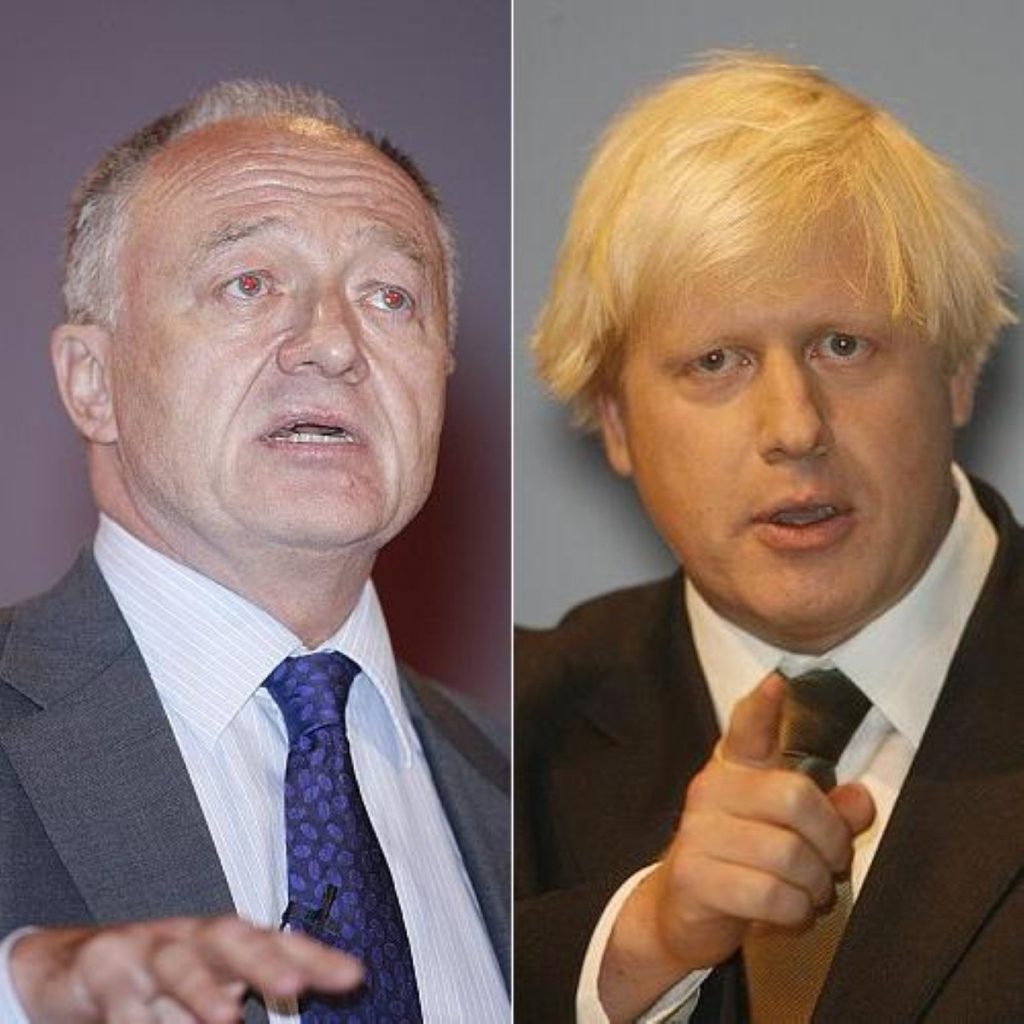Ken leading over Boris as mayoral race tightens
Ken Livingstone has crept ahead of Boris Johnson in the race to be mayor of London.
After successive double digit leads for the Conservative candidate, the incumbent mayor is once again the favourite to be elected to City Hall on May 1st.
But the Ipsos Mori poll, commission by the union Unison, places Mr Livingstone ahead of Mr Johnson by just two per cent, suggesting the campaign will be fought down to the wire.
Today’s poll is just four points apart from an ICM poll for the Guardian last week but differs widely from YouGov’s polling for the Evening Standard.


The Livingstone campaign team launched a formal complaint against YouGov’s methods, allegedly they underestimated ethnic minorities and younger voters, after the latest poll gave Mr Johnson a 13-point lead.
The Ipsos Mori poll shows Mr Livingstone can expect to claim 41 per cent of first preference votes, compared to 40 per cent for Mr Johnson.
When second preferences are taken into account, the Labour candidate’s lead extends slightly to 51 per cent to 40 per cent.
Brian Paddick, standing for the Liberal Democrats, sees his biggest share of the vote yet, with 14 per cent of first preferences pledged for the former policeman.
The Green party’s candidate Sian Berry is on course to secure five per cent of first preferences, and has urged supporters to back Mr Livingstone as their second choice.
Some 22 per cent of voters have pledged their second preference to Ms Berry, suggesting her pact with Mr Livingstone has boosted support for the Greens.
But it is Mr Paddick who is leading among second preference votes, with 44 per cent of the share.
Voters appear strongly drawn to one of Mr Livingstone or Mr Johnson or not at all, with the two candidates claiming 15 per cent and 17 per cent of second preferences respectively.
A breakdown of the results suggests turnout could prove crucial in determining the next mayor of London.
Mr Livingston’s advantage is just two per cent when only people who are certain to vote are included, but extends to eight per cent when anyone with a preference is taken into account.
Unison is campaigning for a big turnout in the London assembly and mayoral elections to ensure the BNP do not make any electoral gains.
Dave Prentis, Unison general secretary, said: “Unison members need to maximise the vote in London and throughout England and Wales to ensure that the far-right BNP does not gain any further electoral foothold.”
Separate polling suggests the turnout on May 1st is likely to exceed that seen in the 2004 election.









